Hidden efforts behind the future engineers
IF YOU are a student from the college of humanities, imagine what an engineering student looks like. Perhaps most of you think that engineering students like drinking rather than studying, have sleepy eyes, and feel gloomy due to lack of female students. If you are a student from the engineering college, such groundless rumors must annoy you.
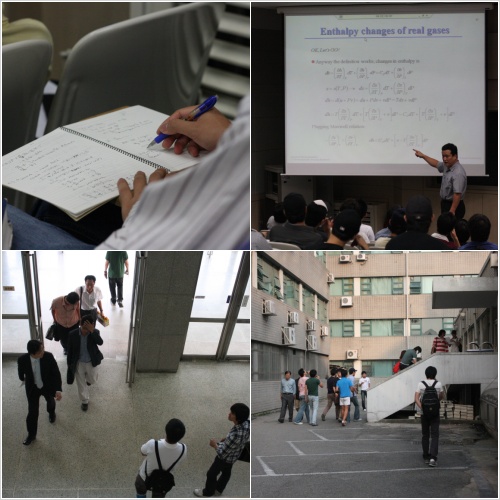
In reality, engineering students suffer from a huge quantity of homework, more than three quizzes a week, tough four-hour long experiments, and late classes. Humanities students are not aware of any of this. Perhaps the lives of engineering students are not so different than people imagine. But there is also a saying ― "Don't judge a book by its cover."
Light up what you imagine
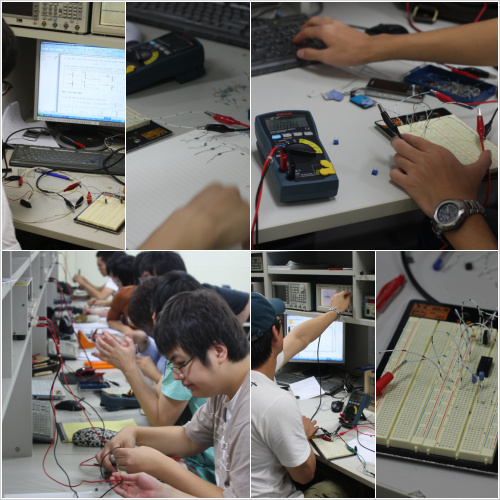
In Electrical and Electronics Engineering Experiments class (Fundamentals & Applications), students try to find the relationship among electric current, resistance, and voltage. They have to perform precise calculations in order to generate the specific amount of electricity, and connect electric wires together in various ways. And most importantly, they must be careful not to get an electric shock. Fortunately, lab assistants are present if they have any questions.
Usually they listen to theoretical lectures for one hour, and then perform experiments for four hours using the information they have been taught. "It is hard to learn experimental methods just by conducting the experiment for five hours, without receiving concrete explanations," says Go Ye-gon (Soph., Dept. of Electrical & Electronic Engin.). They even have to do extra experiments on Saturday if they are not able to finish within the allotted time.
Construct our future dream
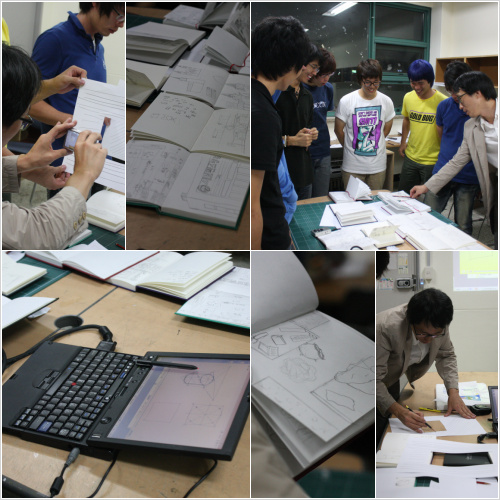
Have you ever taken class that lasted for six consecutive hours? Does your class end at nine p.m.? Such things are common for students studying architecture. Due to their deadly schedules, students cannot take a break even during school vacations, since they have to finish their projects in time. Moreover, students in the Dept. of Architecture must attend college for five years to receive a degree. During Design with Drawing 1 class, students show their drawings to the professor, who gives them advice on how they can improve their drawings and plans. Although the class continues until the late hours of the night, students are passionate to learn how drawing techniques can be applied to the construction of actual buildings. Chun Chang-min (Fresh., University College, Architectural & Urban Planning Engin.) says, "When looking at my six-hour-class timetable, I cannot help but sighing. But the class seems interesting to me."
Blend your dream with desire
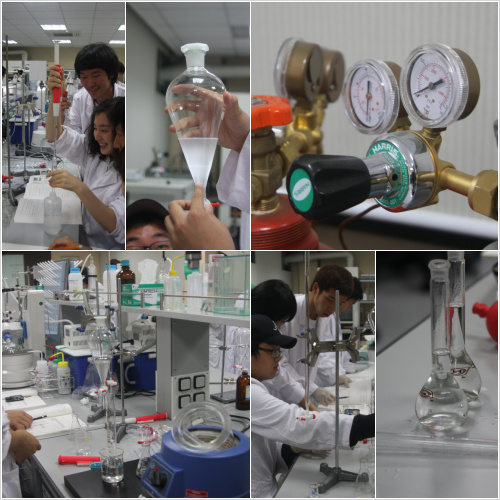
Perhaps most of you already know that water and oil do not mix. But did you know that they can be mixed together with special methods? In Basic Chemical Engineering & Lab class, students calculate the amount of a solute needed to compound two different solvents. Since they have to work with strong alkalis such as sodium hydroxide (NaOH), they have to wear gowns, goggles, and rubber gloves. Students must execute their experiment carefully to prevent accidents, staring into the scales of a measuring cylinder until midnight. "Although we take three credit classes, we have to experiment for at least four hours in the night. Moreover, we have quizzes in addition to the exams, and must report on each experiment," says Choi Seon-yeong (Soph., Dept. of Chemical & Biomolecular Engin.). It seems really hard for them, but students participate in experiments with great curiosity.
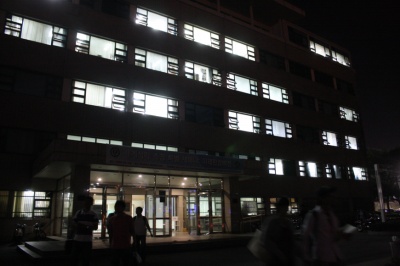
Around 11 o'clock at night, many of the classrooms in the Engineering Halls are still brightly lit. Although the students, who woke up early in the morning and have been experimenting all day, must be tired, they are still working in the lab trying to solve the problems they have been assigned. After class, they return home late, make reports on the experiments, fall asleep in the wee hours of the night, and start the weary routine again early the next morning. They live, study, and experiment harder than anyone else in the university. And they hope to contribute their knowledge to Korea's engineering industry after graduation. Because of their hidden efforts, Korea will be recognized as one of the most advanced countries in science technology and as a front-runner in the engineering industries. They are not just engineering students: the bright future of Korea rests in their hands.

